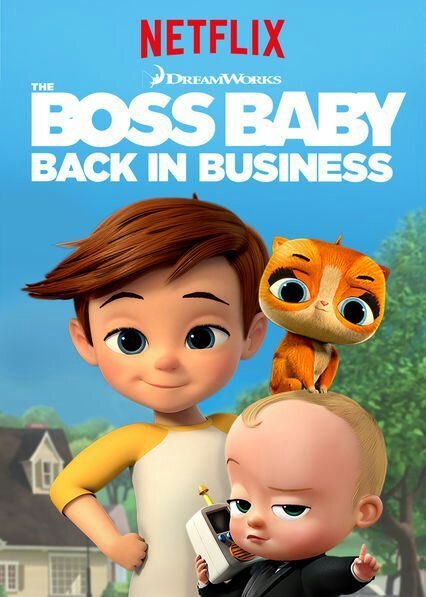"Pagan Chinese Fantasy About Taking Fate into Your Own Hands"

| None | Light | Moderate | Heavy | |
|---|---|---|---|---|
| Language | ||||
| Violence | ||||
| Sex | ||||
| Nudity |
What You Need To Know:
NE ZHA is well produced and often lighthearted. The boy is more of an impish troublemaker than a demon, partly because the heavenly comical assistant controls the boy with a magical hoop. The movie has some vestiges of the monotheism buried, but it’s been corrupted by Eastern, Taoist theology and occult mysticism. NE ZHA also contains a lot of fighting, especially at the end. MOVIEGUIDE® advises moviegoers to avoid the abhorrent theology in NE ZHA.
Content:
More Detail:
Loosely based on a popular tale in Chinese mythology, NE ZHA is an animated Chinese fantasy with false Taoist religious ideas about a child with special powers who has a curse placed on him before he is born but eventually becomes a god, even though he has trouble controlling himself. A 1979 movie, NEZHA CONQUERS THE DRAGON KING, is considered a classic work of Chinese animation.
At the risk of being simplistic, Taoism is a form of pantheism, with a splash of polytheism, where the single energy of the universe becomes divided into multiple energies, with the primary division being the yin and the yang, the feminine energy and the masculine energy, with yang being the active, masculine energy and yin being the inactive or receptive, feminine energy. The goal is to learn how to balance all these energies, including the yin and the yang, while remaining true to yourself and letting your identity grow naturally, to live a better life. Taoism also teaches the existence of three primordial gods, or Three Pure Ones, who are the perfect manifestation of the Tao, the natural order of the universe.
NE ZHA earned a lot of money at the overseas box office. So, although it’s only getting a limited theatrical run in the United States, MOVIEGUIDE® decided to do a review.
Set in Ancient China, the movie tells viewers that, one thousand years ago, the spiritual energies of Heaven and Earth produced the “Chaos Pearl.” However, the energy, which is depicted as a crystal creature with a face and four crystal “hands,” became so powerful that the magical pearl absorbed the Sun and the Moon and made the Immortal and Demonic Qi (“chee”) energies inseparable, thus blurring the lines between good and evil. (The concept of Qi is roughly akin to the Western idea of spirit or spirit energy.)
The Primeval Lord of Heaven, one of the three highest deities in Taoism, subdues and refines the Chaos Pearl into the Spirit Pearl and the Demon Pill. The Lord of Heaven places a “Heaven-made” curse on the Demon Pill so that a bolt of lightning will destroy it in three years. He then instructs a comical heavenly being, Taiyi, to reincarnate the Spirit Pearl into the third son of Lord Li and his wife and watch over the boy, who shall be called Ne Zha.
However, Taiyi’s evil brother, Shen, is jealous of Taiyi. Shen manages to steal the Spirit Pearl and magically insert the Demon Pill into Lady Li’s unborn son. When Ne Zhan is born, he comes out as just a ball of flesh with a face and then, in a flame of fire, becomes a full infant who can hurl balls of flame. Taiyi stops Ne Zha from becoming a full demon by placing a small magical golden hoop around him like a necklace.
Meanwhile, Shen takes the Spirit Pearl and makes a deal with the evil Dragon King, who’s been banished into the ocean by the Lord of Heaven. Shen agrees to give the Dragon King the Spirit Pearl to place inside his unborn son, Ao Bing.
As Ne Zha grows, it becomes increasingly difficult to keep him contained. He causes a ruckus, beating up bullies who beat up another child, scaring villagers, etc. The villagers and other boys are afraid of the impish Ne Zha.
Ne Zha’s father puts a force field around his home and confines Ne Zha to his room, but that doesn’t stop him. He escapes but, as instructed by the Lord of Heaven, Taiyi takes Ne Zha on as an apprentice, to cultivate Ne Zha’s mind and spirit so he will become a warrior for justice, to banish demons and keep the villagers safe. Magically, Taiyi shows Ne Zha how to roam the immortal realm. He also starts teaching Ne Zha the “magic of Kunlun” and the “magic of the infinite universe,” but Ne Zha plays a trick on him when he falls asleep. Then, when Taiyi tells Ne Zha he will teach him how to slay monsters and banish demons for the good of the villagers, Ne Zhe refuses because the villagers shun him. He says he thinks the villagers deserve to be killed since they’ve treated him with such disdain.
However, Ne Zha’s parents lie to him, telling him he’s not a demon but is really the Spirit Pearl reincarnated. They say his purpose is to slay monsters, banish demons and keep people safe. They also tell him that, if he does this and treats the villagers like family, they will have no reason to fear him anymore. Ne Zha’s parents want their son to get the most out of life as possible, before the curse from the Lord of Heaven destroys him.
Two years later, Ne Zha is training to do just that, but he’s too impulsive and quick to anger. Simulated fights with monsters and demons show that his inability to control himself endangers the lives of others. His parents try to tell him he needs to learn how to meditate and calm himself, but Ne Zha runs away so he can start slaying monsters and banishing demons.
So, the question becomes, will Ne Zha ever learn to become the hero his parents want him to be? If, that is, the villagers can ever learn to give him a chance. What if, however, Ne Zha discovers that his parents lied to him?
Although NE ZHA is animated and looks like it will be safe for kids, it’s definitely not. Abhorrent references to false religion pervades the movie, although Christians will identify with the movie’s parallels to Christianity. The first scene explains that the energies of heaven and earth absorbed the energy of the sun and the moon to blur the lines between good and evil. Ne Zha is referred to as a demon throughout the movie and is rebuked and ostracized through most of it. Ne Zha is also given a magical hoop that allows him to cast spells on other characters and objects. Before casting the spell, he mentions it has the weight of one thousand souls. The movie also includes references to Taoist characters and places like the 12 Golden Immortals, the Court of Heaven and the “Primeval Lord of Heaven,” who’s also called the “Supreme Lord.” These last references are interesting, however. They do reflect vestiges of the Chinese people’s earliest religious belief in a benevolent Creator God, who punishes the bad and rewards the good according to His eternal moral principles. After all, like everyone else, the Chinese people are descended from the family of Noah and from the people that God dispersed throughout the world in the biblical passages about the story of the Tower of Babel. In addition to these Taoist and references, Ne Zha is encouraged to meditate to control his mind and emotions. Finally, reincarnation references are also used in the movie.
Having said this, the movie, apart from the overwhelming symbolism and imagery of false religion, is animated with absolute precision. Using vibrant colors, the animators have created a fabulous, yet not overly complicated plot. Much of the movie is lighthearted and resembles some of the stylistic choices of the best of today’s American animation. Also, despite all the false theology, the story does show that people can overcome the evil lurking inside them and become the hero that people need them to be. (Of course, this is only by God’s Grace through Jesus Christ.)
The movie is also relatively clean, but it is moderately violent including rude gestures and inappropriate treatment of children to their parents. Some gross vulgarities are used, including references to passing gas, using saliva to petrify people, and using snot to restore them. Also, a few scenes show boys urinating.
NE ZHA made a lot of money overseas in countries where Buddhism, Taoism and other false religions are prevalent, so it’s meant to appeal to those areas. However, it’s having a limited release in the United States and Canada, where such religions are a small minority. Even so, children in the United States, Canada and other countries where false religions are a small minority may still be attracted to such fantasy entertainment. Especially since the movie is being marketed to them. So, parents should make sure their children avoid such entertainment. Meanwhile, because Buddhism, Taoism and other false religions are so prevalent in other countries overseas, the popularity of movies like NE ZHA should spur Christians to double and even quadruple their efforts to bring the Gospel of Jesus Christ to more people overseas.



 - Content:
- Content: 


